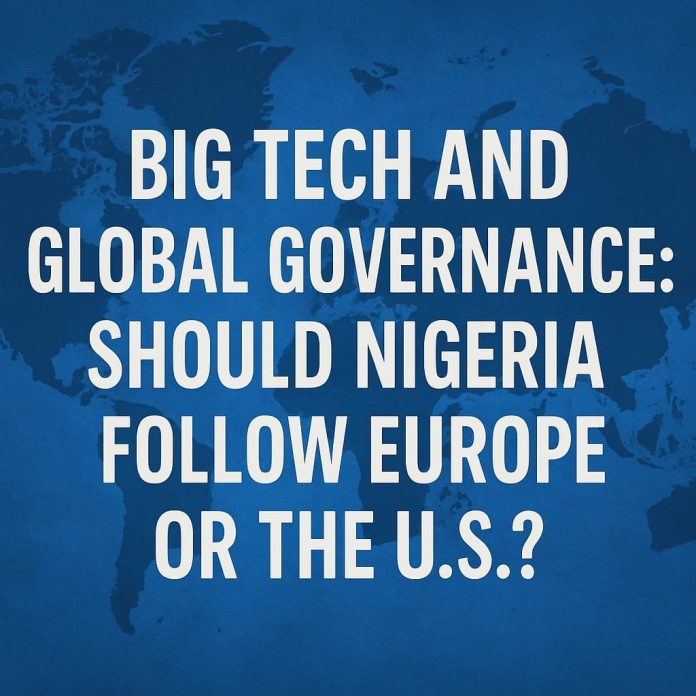By Newspot Nigeria
Susan Ness’s Truth and Consequences: The Post-Election Regulatory Landscape for Big Tech explores the evolving regulatory battlefields of the U.S. and Europe. While insightful, her analysis leans heavily on the idea that the future of digital governance lies solely between two poles: the EU’s proactive regulation and the U.S.’s laissez-faire libertarianism. But in an increasingly multipolar digital world, this binary framing limits the conversation—especially for countries like Nigeria, navigating their own complex realities.
Ness rightly applauds Europe’s regulatory leadership. Under Ursula von der Leyen’s stewardship, landmark legislation such as the Digital Services Act (DSA), Digital Markets Act (DMA), and AI Act have enforced long-overdue standards of transparency, user protection, and platform accountability. These initiatives offer meaningful safeguards, particularly for protecting children and upholding democratic processes.
However, Ness glosses over a critical reality: Europe’s regulatory zeal is beginning to show diminishing returns. As Mario Draghi recently warned, overregulation may be undermining competitiveness and stifling innovation. The European Commission’s recent shift from compliance to competitiveness signals an implicit acknowledgment of this tension.
On the other side of the Atlantic, the U.S.—particularly under President Trump’s renewed leadership—is embracing an aggressive deregulatory agenda. Fact-checking is fading, trust and safety teams are being dismantled, and platforms are being reimagined as battlegrounds for unfiltered speech. Ness rightly critiques the chaos of this approach but misses a valid Republican concern: regulation must not morph into ideological censorship. Weaponizing governance against political dissenters is not democracy—it’s digital authoritarianism in disguise.
So, where does that leave Nigeria?
In limbo.
Blindly adopting Europe’s model would require state capacity we currently lack—independent regulators, robust civic watchdogs, and the digital infrastructure to enforce sweeping mandates. But importing America’s free-market chaos would open the floodgates to exploitation, disinformation, and harm—without the constitutional buffers the U.S. enjoys.
What Nigeria needs is a third way. A governance framework that reflects our values, safeguards our citizens, and supports innovation. Here’s how:
- Adopt context-specific regulation anchored in Nigeria’s social, cultural, and political realities.
- Pursue co-regulation, fostering collaboration between government, tech firms, and civil society.
- Focus on high-impact areas—child safety, electoral integrity, and protection from financial scams—rather than vague or politicized censorship.
- Invest in data infrastructure that promotes transparency, research access, and public accountability—without sacrificing national sovereignty.
As global powers wrestle over Big Tech’s destiny, Nigeria must avoid becoming collateral damage in a regulatory arms race. Our path must be intentional, principled, and locally rooted.
Let’s lead with values, innovate with vision, and regulate with wisdom.
Newspot Nigeria – Insight You Can Trust
Share your story or advertise with us: Whatsapp: +2347068606071 Email: info@newspotng.com

















